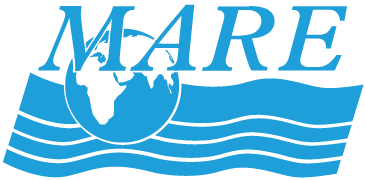K–12 Educators and Schools
MARE offers a variety of powerful curriculum tools, resources, and professional development to help bring the excitement of ocean sciences to your school.
Our professional development and curriculum resources are grounded in research and best practices in science education. Our curriculum is inquiry-based, hands-on, and promotes literacy integration and student discussion.
- Become a MARE School and learn about parent involvement
- Learn about how MARE curricula can invigorate your science program
- Check out our variety of professional development offerings
- Need resources for teaching ocean sciences?
- Find a MARE Center near you
- Want to get involved in promoting ocean literacy?
Contact us! We are here to support you with anything from MARE curriculum questions to designing custom professional development for your site.
MARE in Schools
MARE Ocean Immersions are celebrations of ocean sciences education in elementary and middle schools. Using the MARE Teacher’s Guides to Marine Habitats Curriculum, the whole school community including faculty, students and families comes together to learn about the ocean. MARE staff can be on-site at your school for your planning, and throughout your Ocean Immersion event. Teachers receive coaching, support and in-class modeling of MARE curriculum from the MARE staff.
Learn more about bringing an Ocean Immersion to your school!
Professional Development for Educators
MARE offers a variety of professional development offerings to support science instruction in your school. From support for MARE Ocean Immersions, teacher workshops on a variety of topics, habitat workshops, and whole-staff inservices, our professional development is based on research-informed best practices and teaches and models inquiry-based teaching approaches using ocean sciences exemplars.
Find out more about professional development for your staff!
The Ocean Literacy Campaign and Schools
MARE has been a leader in the Ocean Literacy Campaign, a national, collaborative effort by scientists and educators to build a more ocean literate society. Ocean literacy is defined by seven essential principles, supported by 44 detailed fundamental concepts, which together constitute the big ideas in ocean sciences that every student should understand by the end of 12th grade. To facilitate teaching and learning the Ocean Literacy Principles by high school graduation, the ocean sciences education community developed a scope and sequence to show how the principles could be taught at various grade bands. The Ocean Literacy Scope and Sequence is comprised of 28 conceptual flow diagrams, one for each grade band (K–2, 3–5, 6–8, 9–12) for each principle.
Learn more about how to use these tools in your curriculum development.

